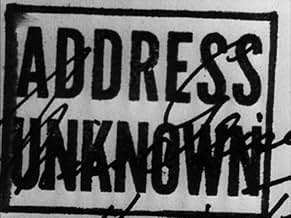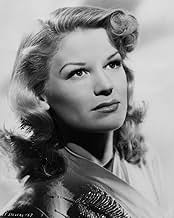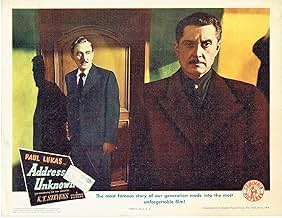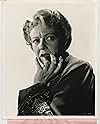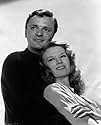Füge eine Handlung in deiner Sprache hinzuA U.S.-based art dealer travels to his former homeland of Germany, where he becomes dangerously susceptible to Nazi propaganda.A U.S.-based art dealer travels to his former homeland of Germany, where he becomes dangerously susceptible to Nazi propaganda.A U.S.-based art dealer travels to his former homeland of Germany, where he becomes dangerously susceptible to Nazi propaganda.
- Regie
- Drehbuch
- Hauptbesetzung
- Für 2 Oscars nominiert
- 1 Gewinn & 2 Nominierungen insgesamt
- Youngest Schulz Boy
- (as Larry Joe Olsen)
- Rock-Tossing Rioter
- (Nicht genannt)
- Nazi Party Member
- (Nicht genannt)
Empfohlene Bewertungen
As such it is not only a brilliantly conceived horror story of how an evil idea poisons a society but how it continues on to destroy life.
The small book was re-issued in 2001 by Washington Square Press and at this writing currently available. No matter how you reacted to the movie this is a must read. It can be read in a single, short sitting but it packs an incredible wallop. The little story is compared to the best writing of O. Henry for its sly plot twists and lauded by Kurt Vonnegut who compares it to WWII as what Uncle Tom's Cabin was to the Civil War.
You can then return to the movie and enjoy it at a far deeper and more profound level. Beyond all of that if Paul Lukas is in a film, any film, you can trust that it is worth watching if only for his performance.
The story concerns two German art dealers in San Francisco circa 1932, Martin (Lukas) and Max Eisenstein (Carnovsky). It falls to Martin to return to Germany with his family to buy and ship art work back to the U.S. gallery. With him and the family is also Griselle, Martin's son's (van Eyck) fiancée, who has acting aspirations and wants to work overseas.
Martin becomes seduced by the "new Germany" under Hitler and becomes friends with a baron (Carl Esmond) who encourages him to break ties with his Jewish partner, which he does. The baron also learns that Griselle, who uses the last name Stone, is Jewish. Griselle has a part in a play, and the Nazis have forbidden certain lines to be spoken from the Beatitudes. Griselle says them anyway, and, outed as a Jew by someone at the performance, she runs for her life. She makes her way to Martin's place, where she is turned away.
Martin starts to receive letters from Max that are written in obvious code, giving dimensions of Picassos and having certain numbers substituted for numbers previously sent. The baron warns him that sending and receiving codes is illegal. Martin denies that he is receiving coded letters, meanwhile begging Max to stop writing to him.
The film is very well done in a film noir style, and you can't go wrong visually with Menzies and with Rudy Mate on the camera. The shadows and camera angles are striking, particularly in the play scene and when Martin is alone in his house toward the end of the film. Well worth seeing for the art direction and cinematography alone.
In the actual story, Martin and Griselle have had an affair previously, and Griselle is actually Max's sister. The joke painting that Martin sends back to San Francisco that Max tries to hide from a customer is actually a Picasso - I'm not sure that was made clear in the film.
The action in this film, Martin's turning etc., take place seemingly very quickly and don't come off as believably as in the book, which is actually a series of letters. It has been republished, translated into many languages, and also turned into a play and adapted for radio; it was considered very important at the time it was published, so important that it was felt "too strong" to have been written by a woman, so Katherine Taylor used her maiden name instead to get Kressman Taylor.
The ending pf the film is unexpected. Very suspenseful and absorbing and amazing to look at - with a wonderful performance by Paul Lukas and the rest of the cast - Address Unknown is highly recommended.
The story develops through letter correspondence between the two friends, Martin and Max. There are several stand out scenes, my favourites being the performance at the theatre when Griselle disobeys the Nazi authorities and the following chase that ensues in order to catch her. The acting is good, particularly from Carl Esmond. You just know that there is a nasty ulterior motive lurking behind everything that he says and does. Once Martin begins to receive coded letters, suspicion is aroused by the German censors and it's a matter of time before something happens to him... There is a twist at the end.
The film begins in the 1930s. Paul Lukas and his wife and kids (minus the oldest one) are leaving the US and moving back to Germany. They also decide to take their god-daughter (who is Jewish). Once there, Lukas slowly turns from a nice family man to a Nazi-lover. In the process, all sense of right and wrong seems to disappear from him. And, when his beloved god-daughter is in trouble, he refuses to help. At this point, there is a neat twist in the film involving coded messages and revenge. I won't say more, as it would spoil the film. Suffice to say that this twist gives the film a nice and fitting ending.
The acting, mood and story are all quite good and the film worth seeing. While not a great film it is clever and well-written--and a very good propaganda film to galvanize the folks at home in the war effort.
For anyone who loves the look of films such as "Citizen Kane' or film noir, there is plenty to offer here. The director, William Cameron Menzies, was also a brilliant art director and he went to town on this picture. Just look at the camera work; he and his crew must have shot half the film from a pit in the floor judging from the dramatic angles.
The film is set a few years before WW2. Martin Schulz (Paul Lucas) and Max Eisenstein (Morris Carnovsky) run a successful art gallery in San Francisco, Both are German immigrants and are close friends. Martin's son, Heinrich, (Peter Van Eyck) who also works in the gallery, plans to marry Giselle Eisenstein, Max's daughter (K.T. Stevens). Max is due to return to Germany with his wife, Elsa (Mady Christians), to expedite the buying for the gallery. At the last minute, Giselle breaks off her engagement to Heinrich, and also decides to go to Germany to further her acting career.
In Germany, Martin communicates with Max and Heinrich back at the gallery by mail; through his letters they sense that Martin is falling under the spell of the Nazis. Eventually this hurts Martin's relationship with Max, who is a Jew.
Martin's seduction by the Nazis, and the advantages they offer has similarities to John Halder, Viggo Mortensen's character in the more recent "Good". Both are weak men who are easily led, and both turn their backs on a Jewish friend.
Much of the plot of "Address Unknown" hangs on the letters that go backward and forward between San Francisco and Germany. As the film goes on, we learn how powerful these communications are, especially with the Nazi censors involved.
Giselle's Jewish background puts her in jeopardy when she appears in a play. Interestingly, the lines she speaks, which offend the Nazi censors, are actually the words of Jesus from the "Book of Matthew".
"Address Unknown" has a couple of scenes that really hit home, with one that would have done Val Lewton proud, and has an ending with a twist worthy of an episode of "Alfred Hitchcock Presents".
Although heavily stylised, the film highlights the persecution of the Jews in Nazi Germany, but "Address Unknown" was made in 1944, and the war didn't end until 1945. Films made during WW2, give an insight into what was influencing audiences at the time. Although the full extent of what had been going on in Germany didn't come to light until after the war, "Address Unknown" shows that the plight of the Jews before and during the war was far from a complete mystery.
The film is more restrained than some of the more strident films made during WW2, and it's somewhat abstract quality has prevented it dating all that much.
Wusstest du schon
- WissenswertesK.T. Stevens (real name: Gloria Wood) is the daughter of the film's producer, Sam Wood.
- PatzerWhen Griselle first puts her bloody hand on the frame of Schulz's entrance door after he opens up, the right hand is placed at a certain height and angle while the fingers are spread in a certain shape. But in the following cuts, the hand and fingers have constantly changed angles and positions. In addition, the shape of the bloody hand-print left on the door frame after Schulz closes the door does not match the shape and location Griselle originally placed her hand.
- Zitate
Baron von Friesche: Does he know the conditions he doesn't like? I find that hard to understand. I myself would hesitate to form conclusions without firsthand evidence. You must set him right. I suppose it isn't easy for a foreigner to understand the agonies our people have suffered since the Treaty of Versailles. What years of less and less bread, of leaner bodies, of the end of hope...
[pauses to offer Herr Schulz a cigarette]
Martin Schulz: [accepting a cigarette] Oh, thank you.
Baron von Friesche: The quicksand of despair held us. Then just before we died, a man came and pulled us out.
Baron von Friesche: [turning to Herr Professor] You are a native of Munich, Herr Professor?
Professor Schmidt: Well, uh...
Baron von Friesche: You have *witnessed* this deliverance.
Professor Schmidt: If it *is* a deliverance...
Baron von Friesche: [turning to Herr Schulz] You know, there's a surge, my friend. A surge. Our whole despair has been thrown aside like a forgotten coat. No longer do we wrap ourselves in shame.
Baron von Friesche: [turning to Herr Professor] What can be wrong about a man who affects people so?
Professor Schmidt: When people are hungry, they don't care *what* kind of a man it is who gives them bread.
- Crazy CreditsThe final fade-out is a closeup of the returned letter, specifically the "Address Unknown" stamped in English. It forms an end title card, which was itself unusual for its time.
Top-Auswahl
Details
- Laufzeit1 Stunde 15 Minuten
- Farbe
- Seitenverhältnis
- 1.37 : 1
Zu dieser Seite beitragen



